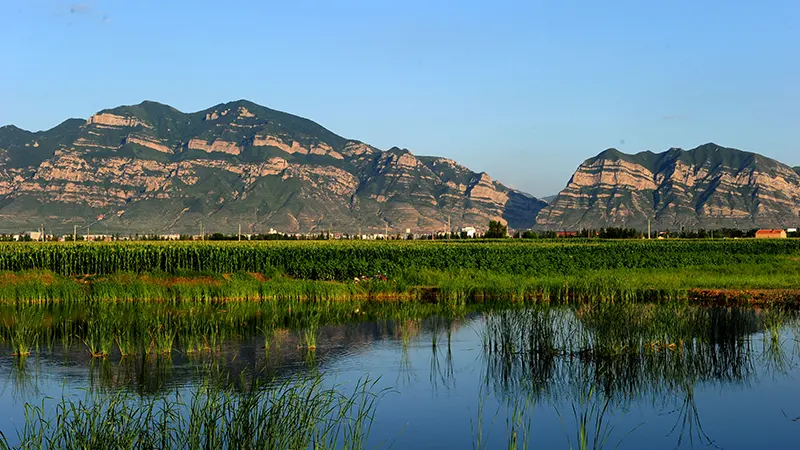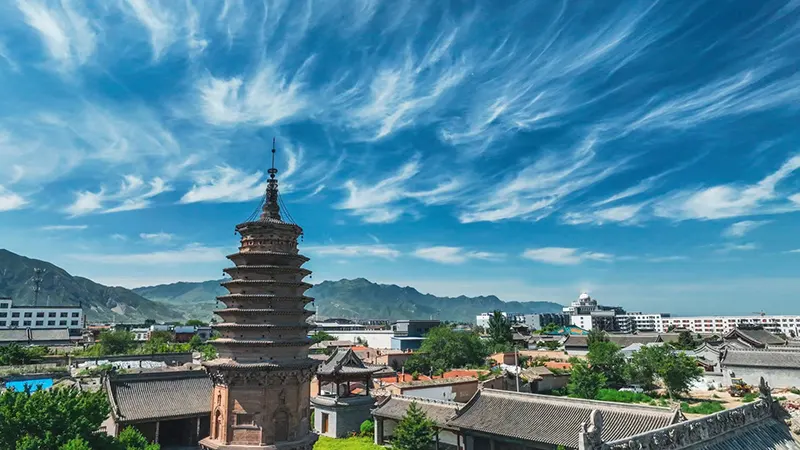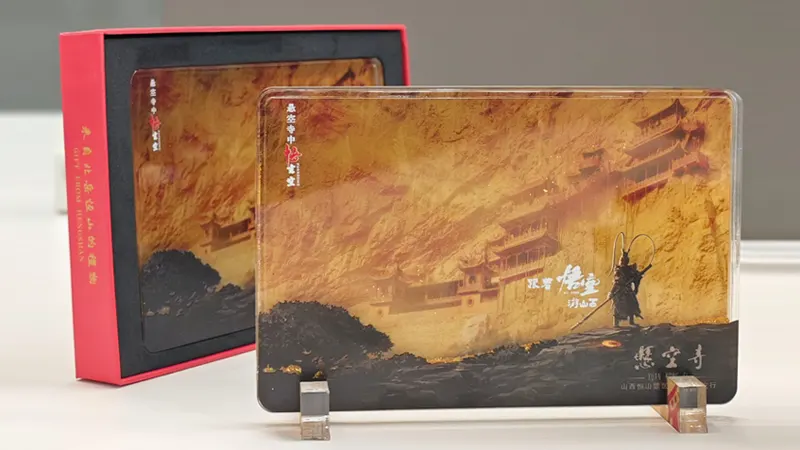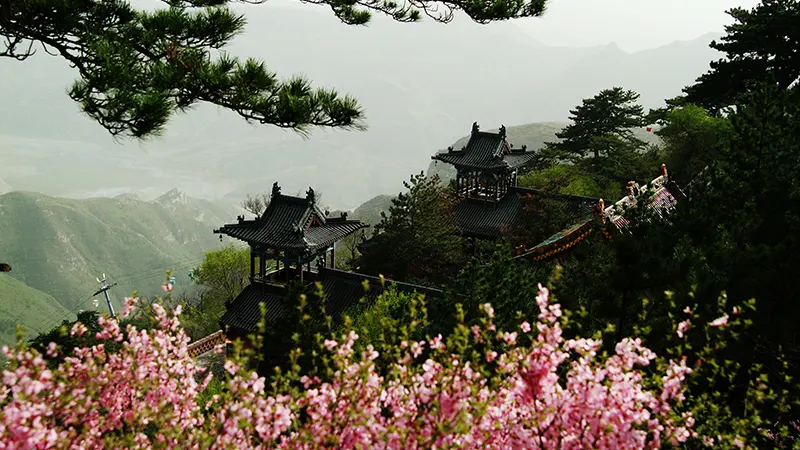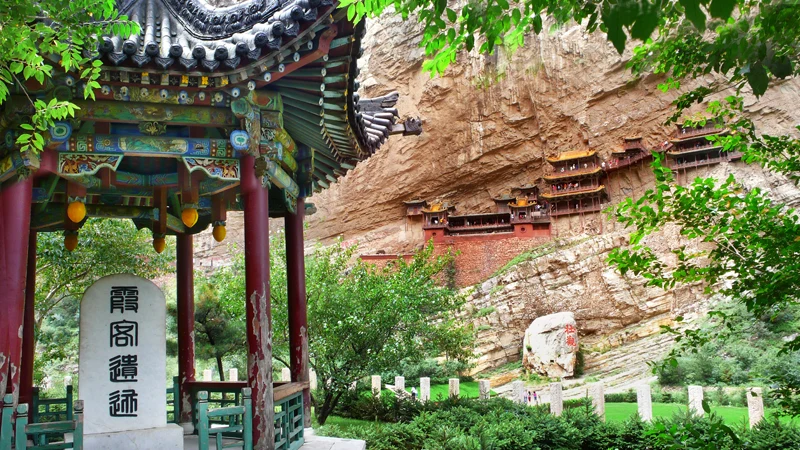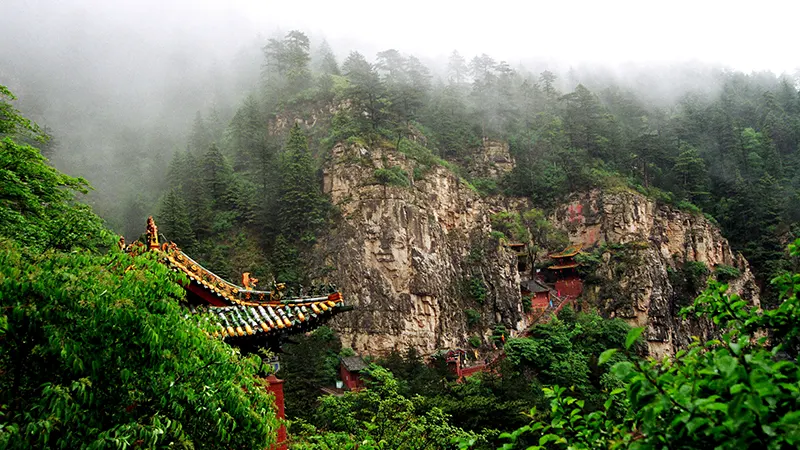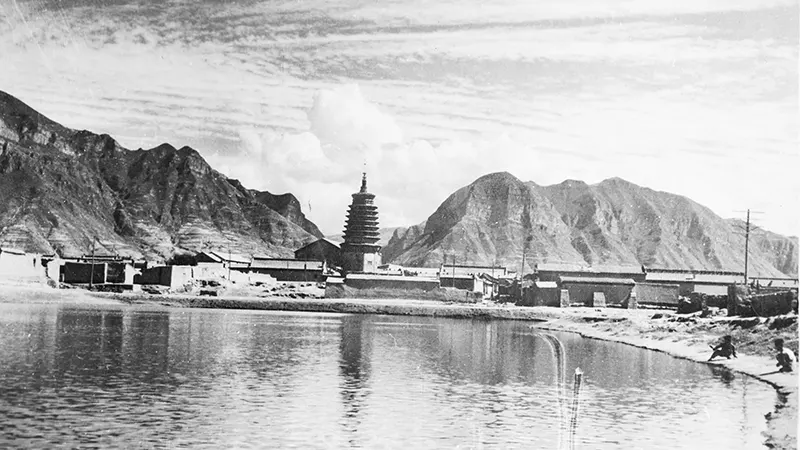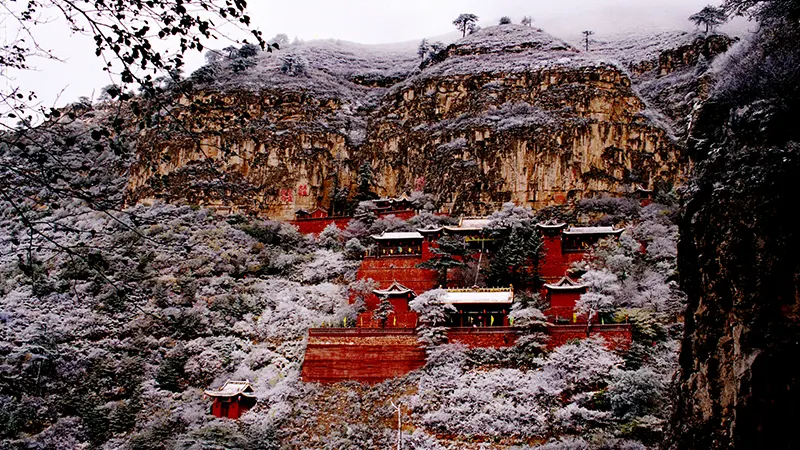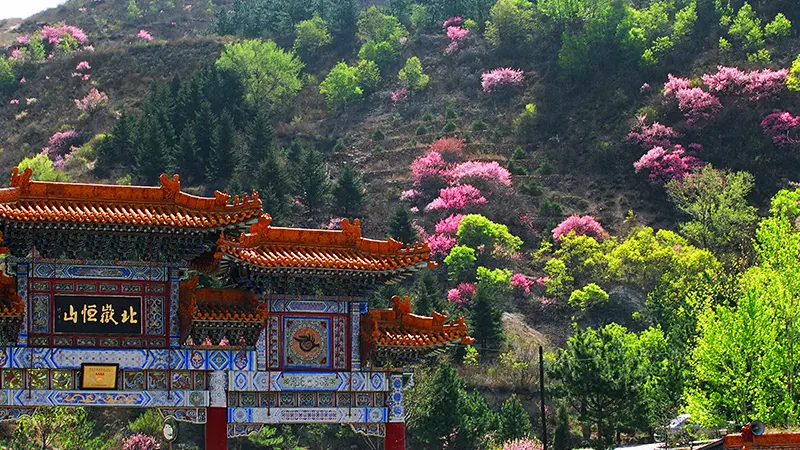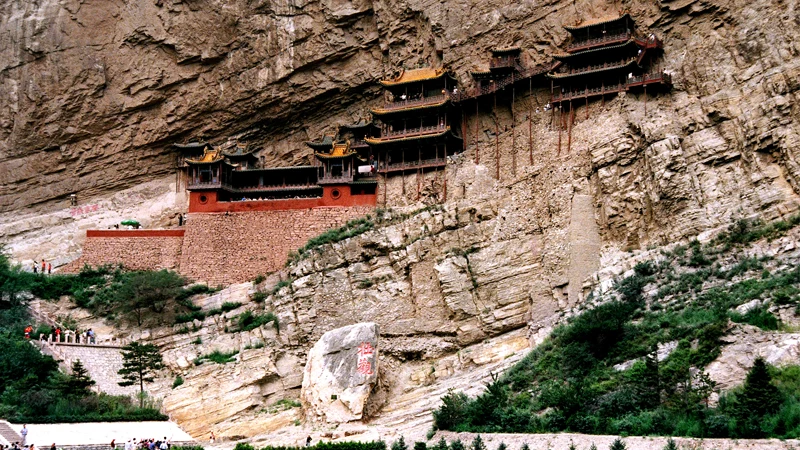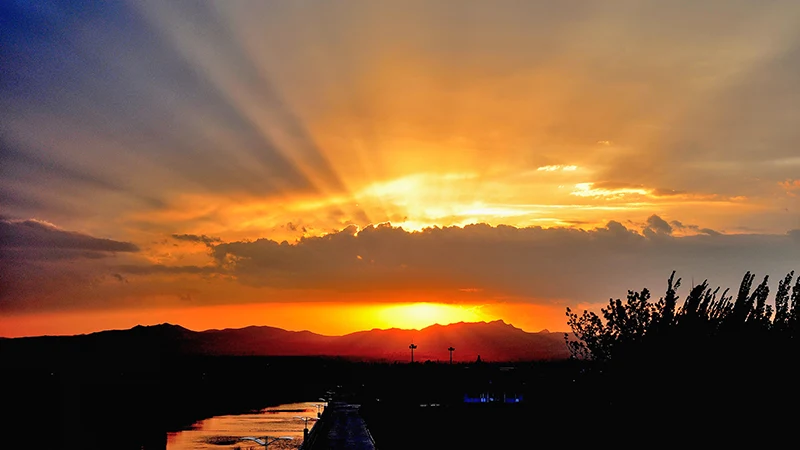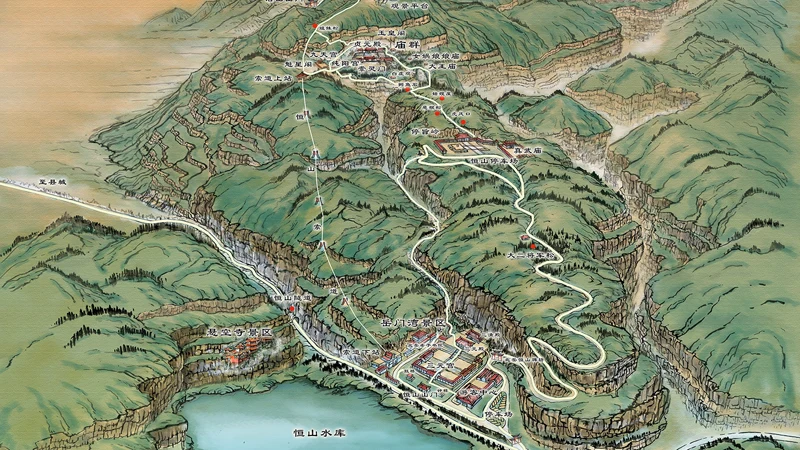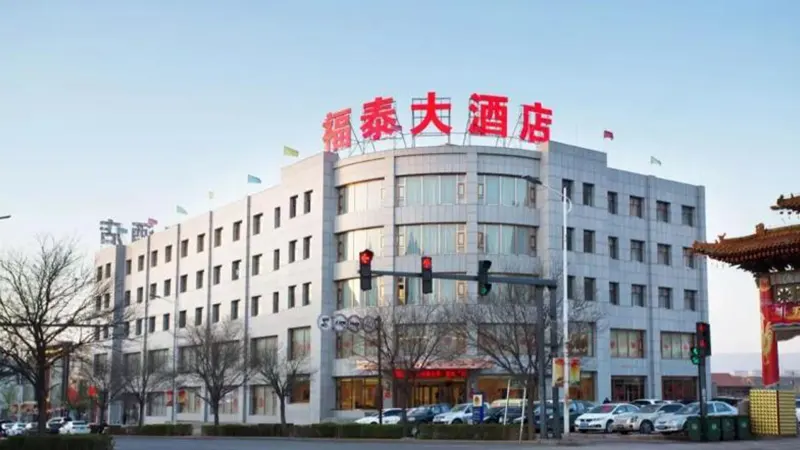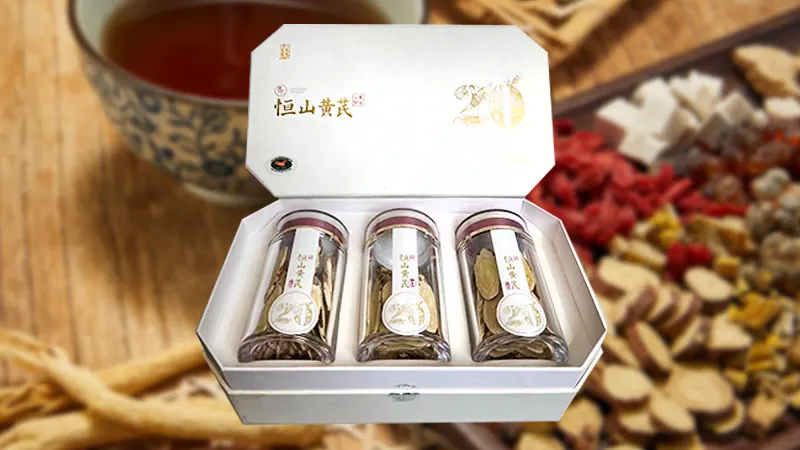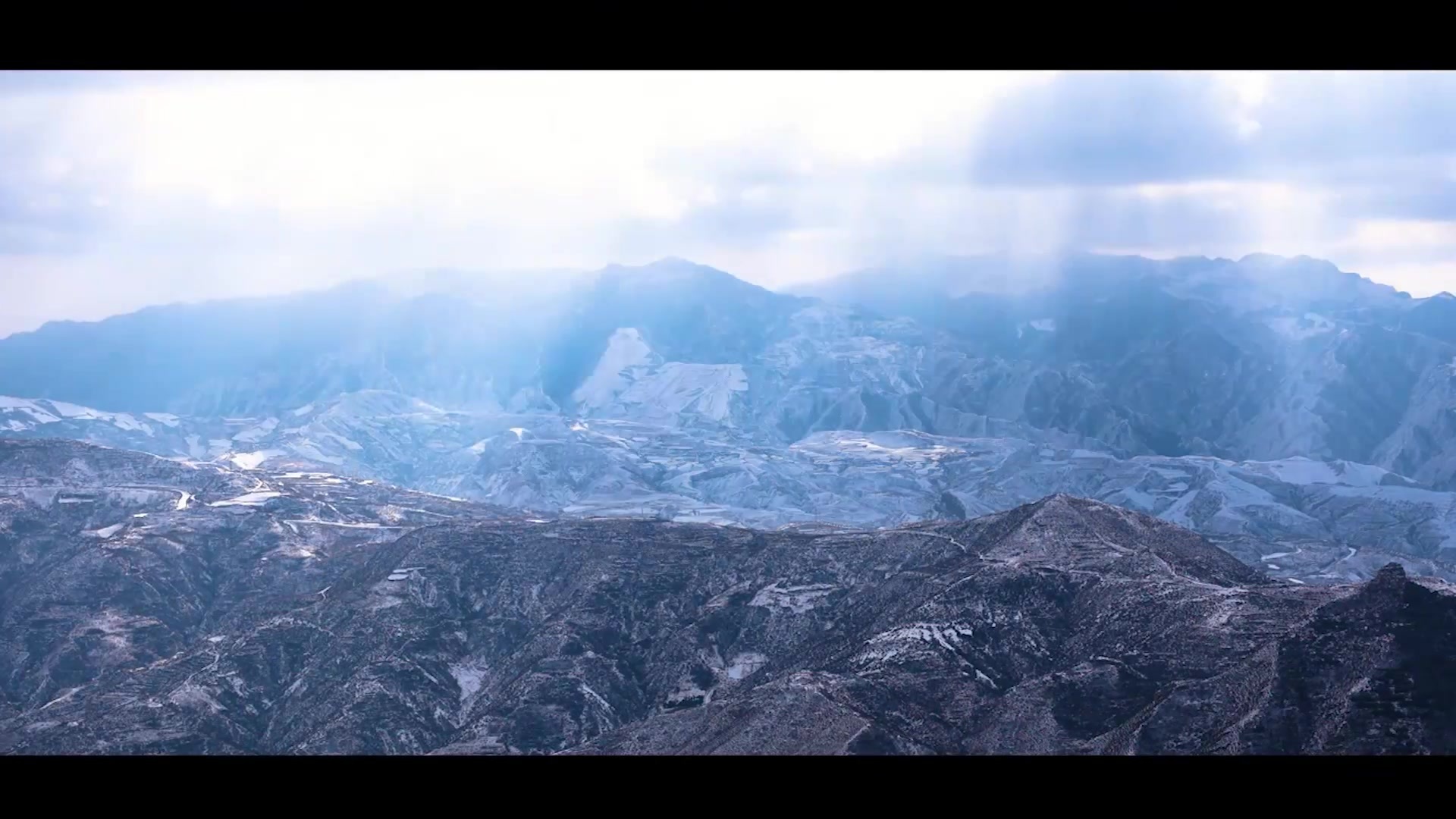Starting from the Northern Emperor in the novel
Publish Time:
2025-03-14 15:15
Source:
In addition to the legendary ancestor Zhuanxu, the commonly referred to Great Emperor of the North Mount is also Cui Ying, a household name stemming from Xu Zhonglin's Ming Dynasty novel *Investiture of the Gods*. In the novel, Cui Ying is appointed as the Great Emperor of the North Mount by Jiang Ziya.
I. Xu Zhonglin and the Relocation of the Northern Mountain Shrine
Xu Zhonglin (approximately 1560-1630), courtesy name Zhongshan Yisou, was a native of Yingtianfu (present-day Nanjing, Jiangsu Province) and a novelist during the Ming Dynasty. Details of his life are unknown, but he is traditionally considered the author of *Investiture of the Gods*. The earliest known edition of *Investiture of the Gods* is the Jin Chang Shu Zaiyang edition printed during the Wanli period of the Ming Dynasty, which is kept in the Japanese Cabinet Library. Volume two of the book is titled "Edited by Xu Zhonglin, Zhongshan Yisou," thus many scholars believe Xu Zhonglin to be the author. However, this is the only evidence, and there is no other information about Xu's life, so it is difficult to determine definitively whether he was the author.
Emperor Shizong Zhu Houcong was the eleventh emperor of the Ming Dynasty, reigning from 1521 to 1566 with the era name Jiajing. He is known as Emperor Jiajing. During his reign, Hengshan Mountain in Hunyuan was already identified as the Northern Mountain, and he even dispatched imperial envoys to the main peak of Hengshan Mountain in Hunyuan to collect twelve superior-quality Ganoderma lucidum. Local officials involved in the search for the Ganoderma lucidum were promoted, and many historical records and inscriptions corroborate this. At that time, the view that "Hengshan Mountain is in Hunyuan" was widely accepted throughout the court and the country, but due to the opposition of Minister of Rites Ni Yue and others, the relocation of the shrine to Hunyuan was not approved. The *Ming Shi* biography records: "Ni Yue, courtesy name Shunzi, was a native of Shangyuan. His father, Qian, was ordered to conduct a ceremony at the Northern Mountain shrine; his mother dreamed of a god in red clothes entering the house, after which she conceived and gave birth to Yue, who was thus named. Qian eventually became Minister of Rites in Nanjing, posthumously awarded the honorific title Wenxi." Ni Yue's birth following his father's ceremony at the Northern Mountain shrine in Quyang, and his mother's dream of the Northern Mountain god entering the house, make his opposition to the relocation of the Northern Mountain shrine to Hunyuan understandable. This resulted in the relocation of the shrine to Hengshan Mountain in Hunyuan, although it was already a prevailing trend, being delayed until the Shunzhi reign of the Qing Dynasty. Xu Zhonglin was six or seven years old when Jiajing died, so when he wrote *Investiture of the Gods*, he must have had a clear understanding of Hengshan Mountain's location in Hunyuan. Xu Xiake (1586-1641), who lived in the same era as Xu Zhonglin, visited Hengshan Mountain in Hunyuan three years after his death (1633) and wrote *Hengshan Mountain Travelogue*, indicating that Hengshan Mountain in Hunyuan was already well-known at that time. Therefore, the Northern Mountain mentioned by Xu Zhonglin in his novel, in the context of Cui Ying's deification, refers to the Northern Mountain in Hunyuan Prefecture.
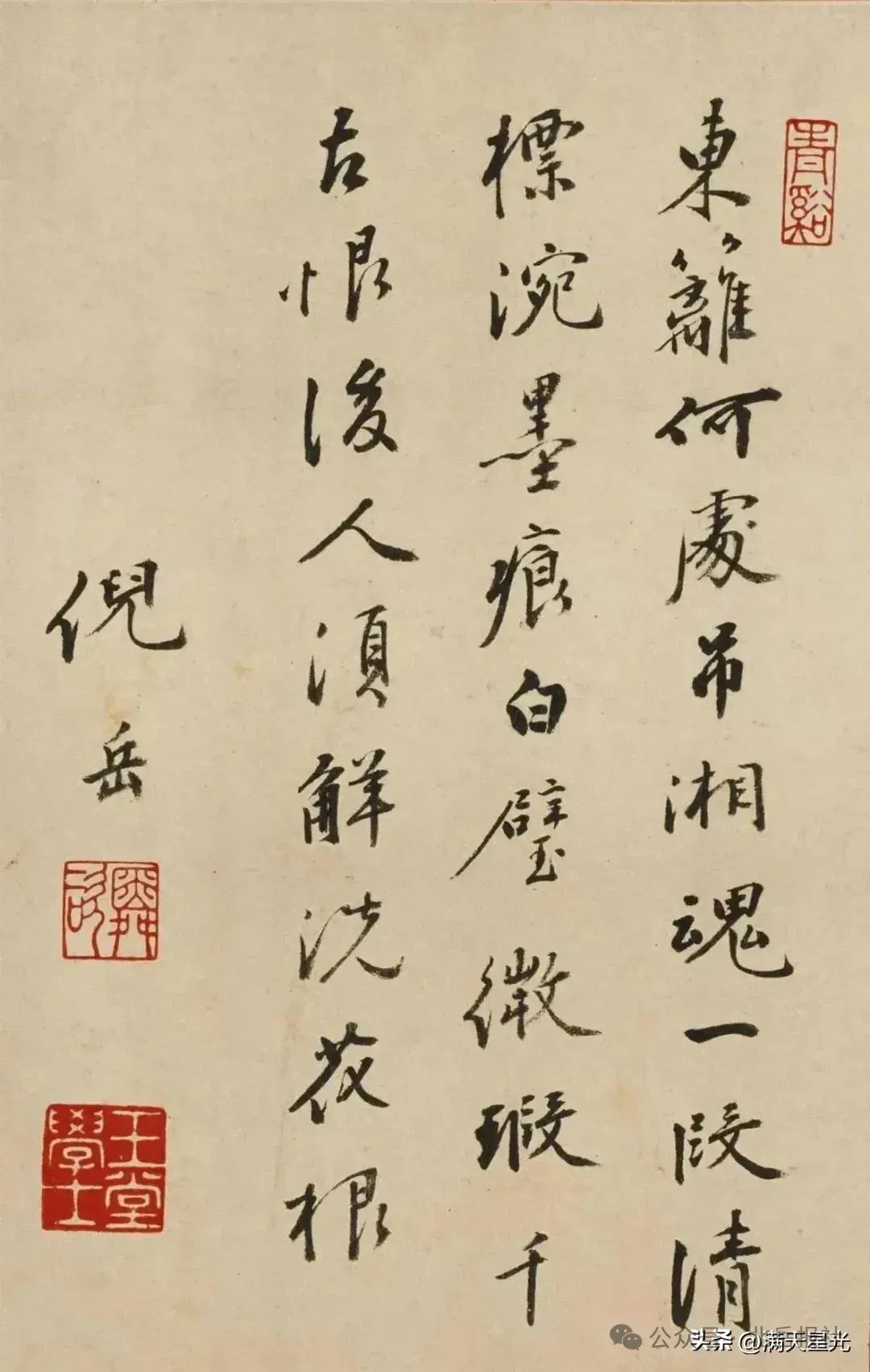
Calligraphy works of Ni Yue, Minister of Rites
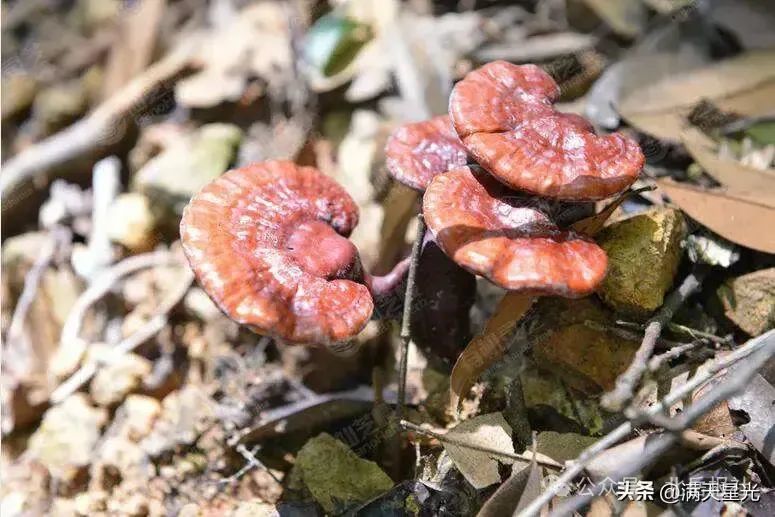
Ganoderma lucidum in the Zizhiyu Valley of Hengshan Mountain
II. The Five Great Mountain Emperors in the Investiture of the Gods
In the ninety-ninth chapter of *Investiture of the Gods*, it is said that Jiang Ziya went to Yuxu Palace to see Yuanshi Tianzun. Entering the palace to the Biyou bed, he prostrated himself and said: "Disciple Jiang Shang wishes the teacher a long life! Today, I have come to the mountain to see the teacher, especially to request jade talismans and imperial mandates, to promptly confer ranks on the loyal and filial ministers and gods who died in battle, so that they will not be without rest, wandering souls, longing for days. I beg the teacher to show great compassion and quickly grant the request. May the gods be fortunate! May the disciple be fortunate!" Yuanshi Tianzun said: "I already know. Go back first, and imperial mandates will soon arrive at the Fengshen Terrace. Go back quickly." Ziya kowtowed his thanks and withdrew. This dialogue clarifies who holds the power of conferring divine status, the purpose of the conferring, and the composition of the list of those conferred divine status. Later, on the Fengshen Terrace, Jiang Ziya read aloud the imperial mandate from Yuxu Palace’s Yuanshi Tianzun: "...According to the severity of the calamity, and the high and low positions, I confer on you the status of eight departmental deities, to manage various offices, to arrange the celestial spheres, to investigate good and evil in the world, and to inspect merit and conduct in the three realms..." This clearly names the standards for conferring divine status, indicating a procedure and order for the ranks. Cui Ying, as a military leader who died in battle fighting against King Zhou, was conferred divine status as the Northern Mountain deity in an orderly fashion.
The Investiture of the Gods conferred divine status on a total of 365 celestial deities, including seven Great Emperors. Apart from Lü Yue, who was made the Wenhuang Haotian Great Emperor, and Bo Yi Kao, who was made the Zhongtian Beiji Ziwei Great Emperor, the five positions of the Five Great Mountain Emperors were filled by Huang Feihu, Chong Heihu, Wen Ping, Cui Ying, and Jiang Xiong. Jiang Ziya declared: "You five shared the same loyal heart, although your merits vary in degree. I specially confer upon you honorific titles, according to your differences." The first was Huang Feihu, the Dongyue Taishan Tianqi Rensheng Great Emperor. Huang Feihu was originally the Wucheng King, who protected the Shang Dynasty. Because King Zhou killed his wife and sister, he defected to Xiqi. After joining the Zhou forces, he repeatedly performed meritorious service. After his death, because he "suffered the cruelty of the tyrant, resulting in his escape to another country, wandering and displaced, feeling the deep sorrow of separation from his family; striving to repay kindness, unexpectedly encountering the calamity of the Yangzhen, and therefore suffered misfortune, his plight is truly lamentable!" he was conferred the position of chief of the Five Great Mountains, the Dongyue Taishan Tianqi Rensheng Great Emperor. He oversaw the good and bad fortune of the heavens and the world, and also controlled the eighteen levels of hell in the underworld: "All matters of transformation between life and death, and between humans, immortals, and ghosts, must be verified by Dongyue before they are permitted." The second was Chong Heihu, the Nanyue Hengshan Sitian Zhaosheng Great Emperor. Chong Heihu was originally the Caozhou Marquis under the command of the Northern Bo Marquis. Later, he colluded with Jiang Ziya to kill his brother, Northern Bo Marquis Chong Houhu, and took over the position of Northern Bo Marquis. Chong Heihu possessed the art of releasing divine eagles. Relying on divine eagles, he repeatedly performed meritorious service. Because "Chong Heihu had the ambition to save the people and happened to be caught in a calamity," after his death, he was made the Nanyue Hengshan Sitian Zhaosheng Great Emperor, ranking second among the Five Great Mountains. The third was Wen Ping, the Zhongyue Songshan Zhongtian Chongsheng Great Emperor. Wen Ping was the leader of Feifeng Mountain. After his death, he was made the Zhongyue Songshan Zhongtian Chongsheng Great Emperor. Because he was the leader of Feifeng Mountain, Wen Ping ranked third among the Five Great Mountain Emperors. The fourth was Cui Ying, the Hengshan Antian Xuansheng Great Emperor. Cui Ying was the second leader of Feifeng Mountain, and followed Wen Ping to submit to Chong Heihu. After his death, Cui Ying was made the Hengshan Antian Xuansheng Great Emperor. The fifth was Jiang Xiong, the Xiyue Huashan Jintianyuan Sheng Great Emperor. Jiang Xiong was the third leader of Feifeng Mountain, and he followed Wen Ping to submit to Chong Heihu. After his death, because he was the third leader of Feifeng Mountain, Jiang Xiong ranked last among the Five Great Mountain Emperors. Jiang Ziya said that these three mountain leaders, because of "the three having a strong brotherhood, planning to unite their efforts and hearts, steadfast in loyalty and righteousness, wishing to serve the country loyally; unexpectedly, the auspicious time ended, dying with unfulfilled aspirations," were thus included among the Five Great Mountain Emperors.
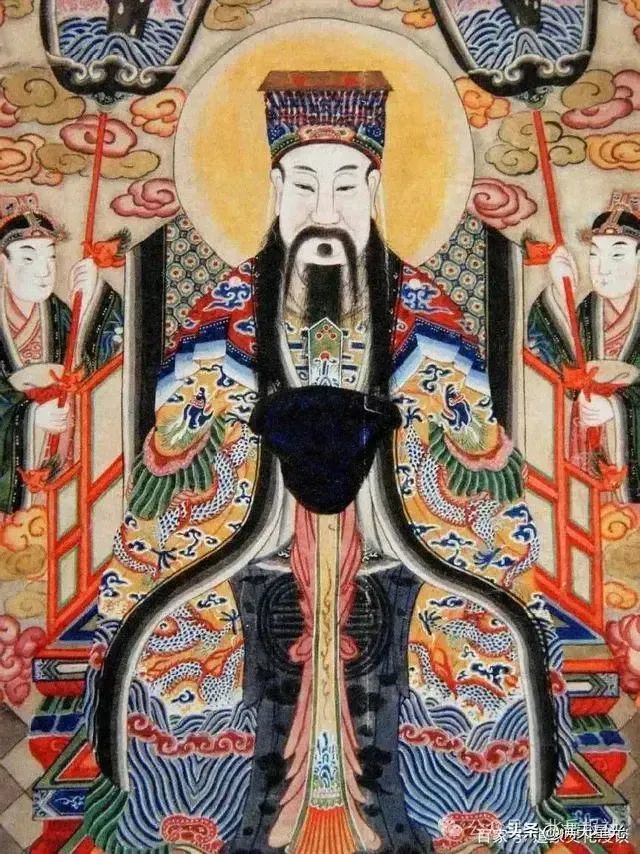
Statue of the Northern Mountain Emperor
III. Cui Ying and Cui Fu Jun
Among the common people, there is also a saying that the King of Hell, Cui Fu Jun, is the Great Emperor of Mount Tai. The classics such as "Sou Shen Guang Ji" and "Ci Zhou Cui Fu Jun Shen Yi Lu" all record that: Cui Fu Jun, whose surname is Cui and given name is Jue, courtesy name Ziyu, his father Cui Rang, was known for his benevolence and charity. When he was nearly fifty years old and had no children, he and his wife went to the Bei Yue (North Peak) Shrine to pray for a child. One night, they dreamed that the god of Bei Yue bestowed upon them two jade objects, which the couple swallowed, and thus Cui Jue was born. According to "Tai Qing Jin Que Yu Hua Xian Shu Ba Ji Shen Zhang San Huang Nei Mi Wen", it is recorded: "The official in charge of life and death in Mount Tai is the Tang official Cui Fu Jun." Therefore, it is verifiable that Cui Fu Jun is also the Great Emperor of Mount Tai.
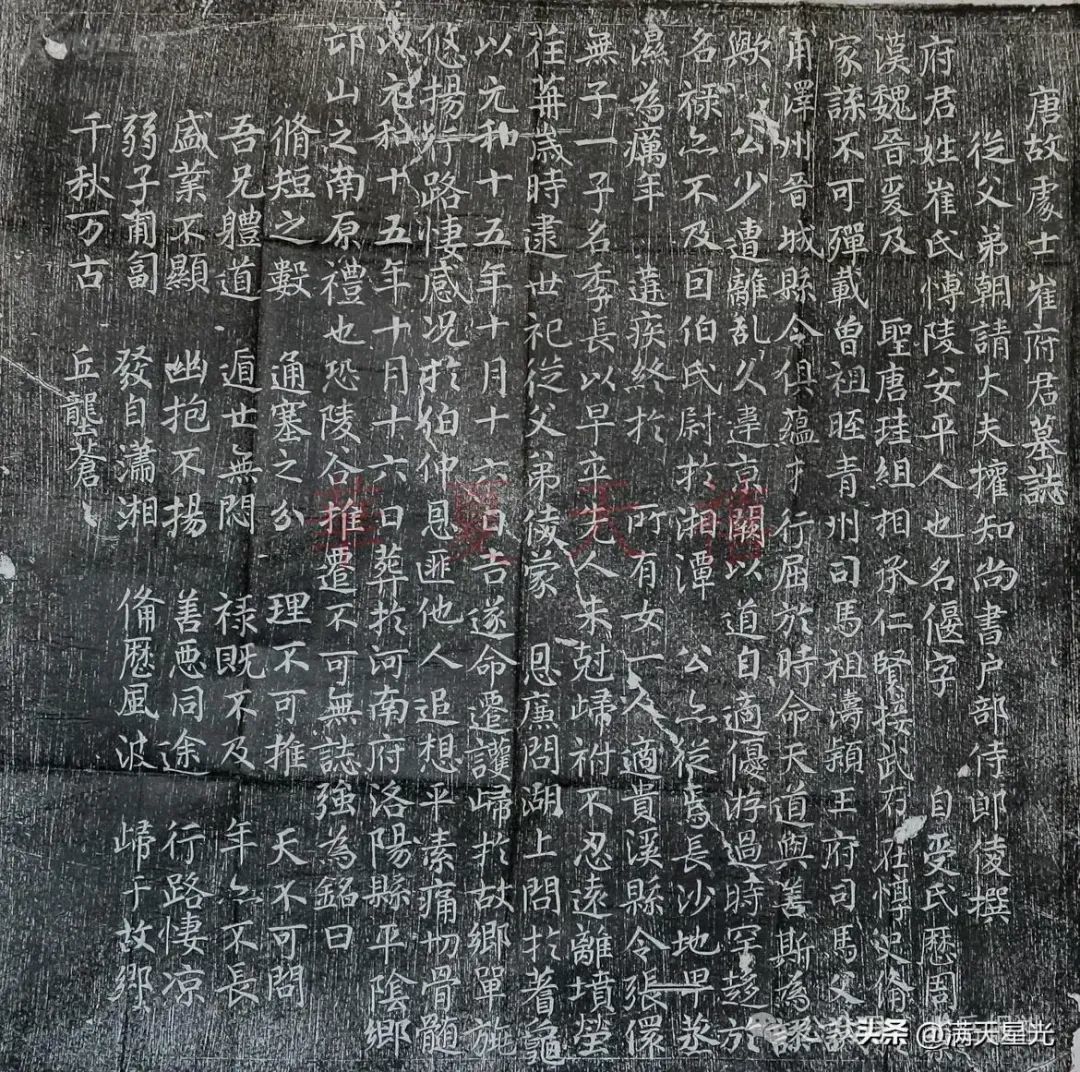
Rubbing of Cui Fu Jun's Tomb Inscription
The image of Cui Fu Jun originated from the god of Mount Tai. His worship first arose during the Tang Dynasty, flourished during the Song and Jin Dynasties, centered in Ci Zhou, and spread throughout Shanxi and Hebei provinces. He is in charge of ghosts. Some scholars point out that one of the sources of Cui Fu Jun's name comes from the Dunhuang Bianwen, "Tang Taizong Ru Ming Ji", which features the "Judge Cui" in the underworld, which is the root of the later evolution of Cui Fu Jun. In the second year of the Jingyou reign of Emperor Renzong of Song, Cui Fu Jun was conferred the title of "Hu Guo Xian Ying Gong". In the second year of the Yuanfu reign, he was re-enthroned as "Hu Guo Xian Ying Wang". In the seventh year of the Zhenghe reign, he was further conferred the title of "Hu Guo Xian Ying Zhao Hui Wang".
In the 20th chapter of "The Complete Story of Yue Fei", "Divine Birds in the Jin Camp Guide the True Master, Mud Horses Cross the River with King Kang", it describes the Jingkang Incident, where the two emperors Huizong and Qinzong were captured, and King Kang Zhao Gou was held hostage by the Jin. After King Kang escaped from the Jin camp by chance, he was chased by Jin soldiers and fled into a desperate situation. At the critical moment, he suddenly saw an old man in Taoist robes leading a horse emerge from the woods. He urged King Kang to quickly mount the horse and cross the river, and told him not to open his eyes along the way. King Kang rode on the horse, and in less than an hour, the horse had crossed the river and galloped ashore. There was a dilapidated temple by the shore, with an old plaque on the temple gate that read "Cui Fu Jun Temple" in five golden characters. In the courtyard of the dilapidated temple stood a mud horse, the same color as the horse he had just ridden, and the horse was still wet. King Kang guessed that this horse must be the one that saved him. Then, he suddenly exclaimed, "That horse is made of mud, how can it not break if it gets wet?" Before he finished speaking, there was a sound, and the horse turned into dust. King Kang went to the hall and made a wish: "I, Zhao Gou, am deeply grateful for your protection! If I truly regain the Song Dynasty's mountains and rivers, I will rebuild your temple and recast your golden body." After a while, Du Kuan, the magistrate of Fengqiu County in Ci Zhou, arrived at the temple to greet him, having been informed by Cui Fu Jun's dream. Later, after Zhao Gou became emperor, he conferred Cui Fu Jun with the title of "Hu Guo Xian Ling Zhen Jun", regarding him as the guardian god. Thus, the worship of Cui Fu Jun flourished in the Southern Song Dynasty.
During the Jin and Yuan dynasties, the Southern Song Dynasty built a Cui Fu Jun Temple in the capital Lin'an, continuing to worship him as a guardian deity. The Jin and Yuan rulers, based on their recognition of Han culture from the regional to the national level, also revered Cui Fu Jun. Because Mount Nanyue was located in the Southern Song Dynasty, Emperor Zhangzong of Jin actually conferred Cui Fu Jun with the title of "Ya Yue Shen". The Yuan government also offered sacrifices to the Cui Fu Jun Temple. In the fifteenth year of Emperor Shizu's reign in the Yuan Dynasty, officials were sent to offer sacrifices to the Five Mountains. The Zhongshu Sheng (Central Secretariat) memorialized: "Now that the north and south are unified, the sacrifices to Mount Nanyue should be moved away from Hengshan. Cui Fu Jun should be given a new title, conferred as "Ling Hui Qi Sheng Guang You Wang", and offered sacrifices at the same time as the Five Mountains." During the reign of Emperor Chengzong of Yuan, Cui Fu Jun was conferred the title of "Ling Hui Qi Sheng Guang You Wang". From this, we can see that Cui Fu Jun was once worshipped as a god of the highest rank as a guardian god.
I believe that perhaps it was influenced by folk legends and imperial conferments that Xu Zhonglin created the character Cui Ying in "Investiture of the Gods", so Cui Ying, the Great Emperor of Mount Tai, may be the chief judge of hell, Cui Fu Jun, who is widely worshipped by the people and enjoys continuous incense. Of course, whether Cui Fu Jun and Cui Ying are the same person can only be confirmed by more research materials (Hengshan Mountain Fool)
Keywords:
Related News
Republic of China hemp mat treasure | Guiyou (1933) Deng Hengyue Ji (with poems and texts)
In today's ancient city of Hunyuan, when discussing well-preserved ancient residences, one must mention the "Ma Family Courtyard." The original owner, Ma Xi Zhen, has also gained attention, as if the person is known because of their residence.
Republican High Liangzuo | 1935 North Shanxi Field Trip Notes
In the spring of 1935, the Nationalist Government in Nanjing dispatched Shao Yuanchong, a member of the Central Executive Committee of the Kuomintang, and Zhang Ji, a member of the Central Supervisory Committee, to Shaanxi to pay homage to the Yellow Emperor's Mausoleum. After the ceremony, Shao Yuanchong went on an inspection tour of Northwest China, visiting Gansu, Qinghai, Ningxia, Inner Mongolia, and Shanxi. His secretary, Gao Liangzuo, accompanied him throughout the journey, recording their observations and experiences, which were subsequently published in major newspapers and generated significant public attention.
Republic of China, Jiang Weiqiao | 1918 Hengshan Mountain photo album
In September 1918, Jiang Weiqiao, a councillor of the Ministry of Education of the Beiyang Government, was ordered by the Ministry of Education to inspect the academic affairs in Shanxi Province. He took the opportunity to pay his respects at Mount Wutai and Hengshan Mountain. He departed from Beijing on September 21, first taking a train to Shijiazhuang, and then to Taiyuan; then he took a carriage to Mount Wutai and Hengshan Mountain; and finally returned to Beijing from Datong by train on October 13.
Shao Yuanchong of the Republic of China | Brief Record of the 1935 Northern Mount Taihe Expedition
In the spring of 1935, the Nanjing Nationalist Government dispatched Shao Yuanchong, a member of the Central Executive Committee of the Kuomintang, and Zhang Ji, a member of the Central Supervisory Committee, to Shaanxi to pay homage to the Yellow Emperor's Mausoleum. After the ceremony, Shao Yuanchong went on an inspection tour of Northwest China, departing from Xi'an on April 25 and subsequently visiting Gansu, Qinghai, Ningxia, Inner Mongolia, and Shanxi.
Chen Xingya's Travelogue of Yungang Grottoes and Hengshan Mountain in 1935, Republic of China
Between the September 18th Incident and the Marco Polo Bridge Incident, Chen Xingya held the idle post of council member of the Peiping Pacification Commission, staying at home and often traveling with friends to various famous scenic spots in China.


